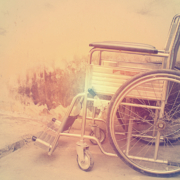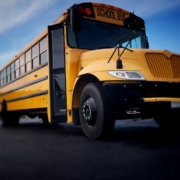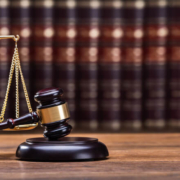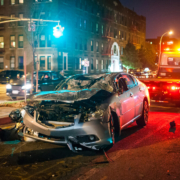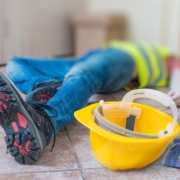5 Signs of Nursing Home Abuse
Placing an aging loved one in a nursing home is always a difficult and heart-wrenching decision. Sometimes, it reaches the point when there are no other viable options for the family. Nursing home residents and their family members have the right to expect that they will be well cared-for as they live out their golden years. Sadly, many of today’s nursing facilities are not living up to their obligation to take care of our seniors.
There are over 2 million seniors living in nursing facilities in the U.S. In recent years, the quality of care in these facilities has severely diminished. Aging demographics have led to higher patient loads, inadequate staffing, and the hiring of poorly-trained and/or poorly-vetted staff. At the same time, consolidation in the industry has created fewer available options at a time when more seniors are in need of care.
Current conditions in America’s nursing homes have resulted in a growing number of cases of abuse and neglect. How widespread is the problem? In 2013, ABC News reported that the elderly are abused at one out of every three nursing homes in the United States. A joint report by USA Today and the Boston Globe from earlier this year found that the problem is even worse in VA nursing homes. These numbers should be concerning for anyone who has a loved one living in a nursing facility.
If you have someone close to you who is living in a nursing home, it can be hard to detect abuse or neglect. When you come to visit, the staff will typically put on their best face and do anything they can to cover up any wrongdoing. Fortunately, there are some signs to look for if you suspect that your elderly loved one is being abused.
Here are five common signs of nursing home abuse:
Unexplained Injuries: As we get older, we become more susceptible to bruises, falls, fractures, and other types of injuries. So, it is no surprise that many seniors suffer these types of injuries while they are in a nursing home. That said, be very suspicious if your loved one or staff have a hard time explaining how a certain injury occurred. There are legitimate reasons why people become injured, but this can also be the result of physical or sexual abuse, or even neglect. Along these same lines, an unexplained death could also be the result of abuse or neglect. This is a definite possibility if your loved one was in fairly good condition when passed away suddenly.
Malnutrition or Dehydration: Be aware of sudden changes in weight and overall health. This could be a sign that your loved one is malnourished, dehydrated, or both. Malnutrition and dehydration can occur because of understaffing or poorly trained staff who are unable or unwilling to take the time to ensure that their patients eat properly and receive the right amount of fluids. Common signs of malnutrition and dehydration include dry mouth, cracked lips, a swollen tongue, reduced frequency of urination, and fatigue.
Poor Hygiene: One common symptom of elder abuse is a deterioration in hygiene. Signs of this include soiled bedding and/or clothes, unwashed hair and body, overgrown nails, poor dental care, and generally unsanitary and unsafe living conditions.
Sudden Changes in Mood or Behavior: You know your loved one’s personality better than anyone else. So, if you notice that he/she is suddenly depressed, anxious, angry, agitated, or withdrawn and this is out of character, it may be a sign that abuse is occurring.
Reluctance to Talk in the Presence of Staff: When a nursing home resident is being abused, they are often intimidated or threatened by the staff into staying silent about it when family or friends are around. If you find that your loved one suddenly clams up when certain employees are around, this is a serious cause for concern. On a related note, if you are not allowed to visit with your loved one without a certain staff member being present, that is even further indication that there is a serious problem here.
What to Do if you Suspect Nursing Home Abuse
If you believe that someone close to you is being abused in a nursing home, it is important to take immediate action, even if the abuse does not seem life-threatening. If this is a life-threatening or emergency situation, call 911 or your local police and get help right away.
Here are some other steps you should take:
- Fully document all signs and symptoms of abuse;
- Speak with your loved one privately (if possible) to discuss what is happening;
- If the abuse has occurred in an Alabama nursing facility, you should can report this to the Alabama Adult Protective Services by calling (334) 242-1350 or toll-free at (800) 458-7214;
- Speak with an experienced nursing home abuse and neglect attorney to discuss your legal rights and options.
At M. Adam Jones and Associates, we understand the combination of grief and outrage family members feel when they learn that a nursing facility they entrusted to look after their aging loved one betrays that trust. We share your frustration and outrage, and we work tirelessly to ensure that those responsible for this egregious behavior are held fully accountable. We have extensive experience and a successful track record representing clients who have been mistreated in nursing homes, and we have the skills, resources, and commitment to provide our clients with the strong legal representation they need and deserve.
For a free consultation with one of our seasoned attorneys, call our office today at 334-699-5599 or send us a secure and confidential message through our online contact form.

